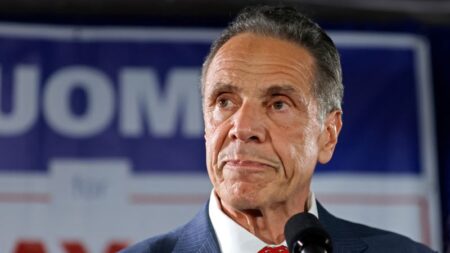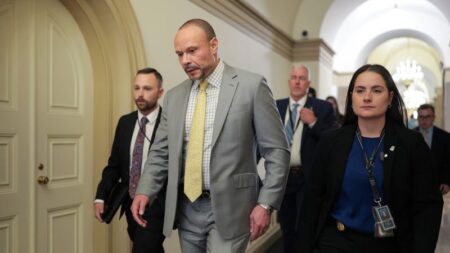**Rachel Reeves Unveils Major Funding Initiatives for the NHS and Housing**
In a significant announcement, Rachel Reeves, the Chancellor of the Exchequer, has outlined a spending plan that allocates an additional £29 billion per year to the National Health Service (NHS). This measure is part of a broader strategy that also includes increased funding for defense and housing, sketching the government’s budgetary forecasts until the end of the decade. With this decision, Reeves emphasizes that “renewing Britain” is at the core of her fiscal agenda, indicating a dedication to bolstering essential public services.
Reeves’ declaration also signals an increase in monetary resources earmarked for artificial intelligence initiatives and transportation projects, highlighting a multifaceted approach to modernizing the UK’s infrastructure and capabilities. However, it is crucial to note that this Spending Review encompasses some austerity measures for certain departments, particularly affecting day-to-day operations in the Foreign Office and the environmental sector. This aspect of the review introduces a layer of complexity, as it raises questions about the balance between necessary funding increases and the stringent fiscal discipline imposed on other public services.
In addressing the Spending Review, Reeves made promises that aim to combine security with economic expansion while portraying an “NHS fit for the future.” Nonetheless, her assertions have drawn criticism, especially from Conservative shadow chancellor Mel Stride, who argued that the strategy amounts to “a spend now, tax later review.” The contrasting views underscore the political tension that surrounds budgetary allocations and the implications they have on future economic policies.
As the government anticipates the upcoming autumn Budget, Stride has forewarned of what could be perceived as “a cruel summer of speculation,” suggesting that significant tax rises might be necessary to support the proposed increases in spending. The Prime Minister, Sir Keir Starmer, remarked on the importance of this moment, indicating it marks “the end of the first phase” of the government’s efforts, as they transition into a stage that promises tangible changes for the working populace.
While the government hopes that the increased funding in health and long-term investment projects will instill confidence among voters, several departments still face rigorous expenditure allocation. Notably, the Foreign Office will experience a 6.9% budget cut per year, the Transport Department will lose 5%, and the environmental department will see reductions of 2.7%. This approach could provoke challenges in public sector pay and service delivery, especially in the context of rising demands for special education and related services.
The negotiations leading up to this review were not without their challenges. Key players such as Housing Secretary Angela Rayner and Home Secretary Yvette Cooper engaged in protracted discussions, ultimately concluding with the housing department securing a robust £39 billion investment over a decade intended for social and affordable housing in England. Additionally, Reeves has indicated a commitment to enhance police funding by 2.3% over the next several years and aims to eliminate hotel accommodations for asylum seekers by the end of the parliamentary term in 2029.
The budgetary changes extend beyond health and housing; they also incorporate £86 billion for science and technology projects as well as £15 billion dedicated to transportation improvements. Furthermore, investment in free school meals is set to increase, at an estimated cost of £1 billion, which underscores the government’s commitment to supporting educational needs in the current economic climate.
Despite the evident emphasis on health and infrastructure, it is crucial to recognize the dynamic political landscape that Reeves navigates. While asserting her government would not revert to the austerity measures of previous Conservative administrations, she believes such policies have weakened societal foundations. Her intent is to differentiate her fiscal approach from prior administrations, focusing on investment and economic revival rather than contraction.
As the government steers through these funding challenges and political criticisms, it may grapple with the risk of voter impatience, especially from constituents who may lean towards alternative political parties like Reform UK. The response from political adversaries has included calls for additional funding in social care, with Liberal Democrat spokesperson Daisy Cooper emphasizing that merely increasing NHS funds without addressing social care issues is akin to “pouring water into a leaky bucket.”
In a time of financial reallocation and economic uncertainty, the outcomes of Reeves’ spending plan remain to be fully realized, but the pressing task of balancing public expectations with budgetary limitations continues to loom large over the government’s fiscal strategy.











